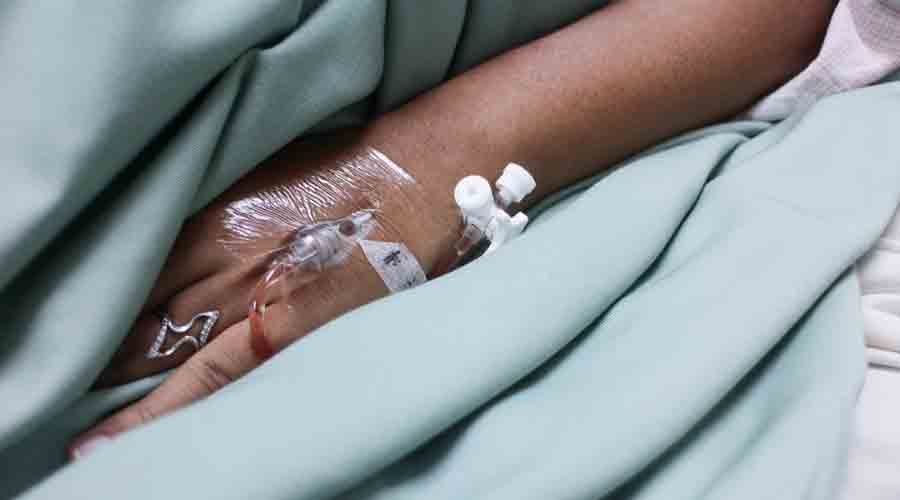A pregnant woman had to undergo a series of blood transfusions through her uterus to save her severely anaemic baby in the run-up to the delivery earlier this month.
The woman and her baby, both stable now, were on Wednesday part of a news conference at a private hospital where she was admitted.
“She was diagnosed with a rare complication of foetal hydrops during the 24th week of pregnancy where fluids get accumulated in the foetus, making the baby anaemic,” said an official of Apollo Gleneagles Hospitals.
“Foetal hydrops occurs in the second pregnancy when the mother’s blood group is Rhesus (Rh) factor negative and the father’s blood group is Rh positive. In such cases, if the first child is born with a positive blood group, chances are there that the mother’s body recognises the positive cells inside the baby as foreign agents and prepares to fight them. But building immune cells or antibodies for the fight takes a few good months and the first baby is safe,” said Kanchan Mukherjee, who performed the transfusions.
“These antibodies attack the positive red blood cells (RCB) in the baby during the second pregnancy. The blood in the foetus turns into fluid and gets accumulated in the baby’s chest, tummy and under the skin,” said Mukherjee.
This was the woman’s second pregnancy. Her firstborn, a girl, is eight now.
Between the 24th and 35th week of her pregnancy, the woman underwent six blood transfusions through her uterus. Each time, a needle was inserted into her umbilical cord. “The normal haemoglobin level is 15 to 16 grams per decilitre. The baby inside the womb had his count reduced to 3 grams per decilitre. With six transfusions, we were able to increase the haemoglobin count of the baby and arrange for timely delivery” said an official of the hospital.
The baby was delivered through C-section on October 19. The mother was discharged on October 23 and the baby a day later. Both the baby and his mother are stable now, a doctor said.
“Even after the transfusions, it was extremely critical to decide the timing of the delivery. Blood transfusion in babies inside the womb has several risk factors leading to premature delivery, heart failure of the baby because of too much blood transfusion,” said Jayanta Kr Gupta, the director and head of the department of obstetrics and gynaecology at the hospital.
“Foetal hydrops is a rare problem during pregnancy, affecting one in 10,000. The mortality rate of babies with foetal hydrops is 50 per cent to 90 per cent, depending on the time of detection,” said a statement from the hospital.
